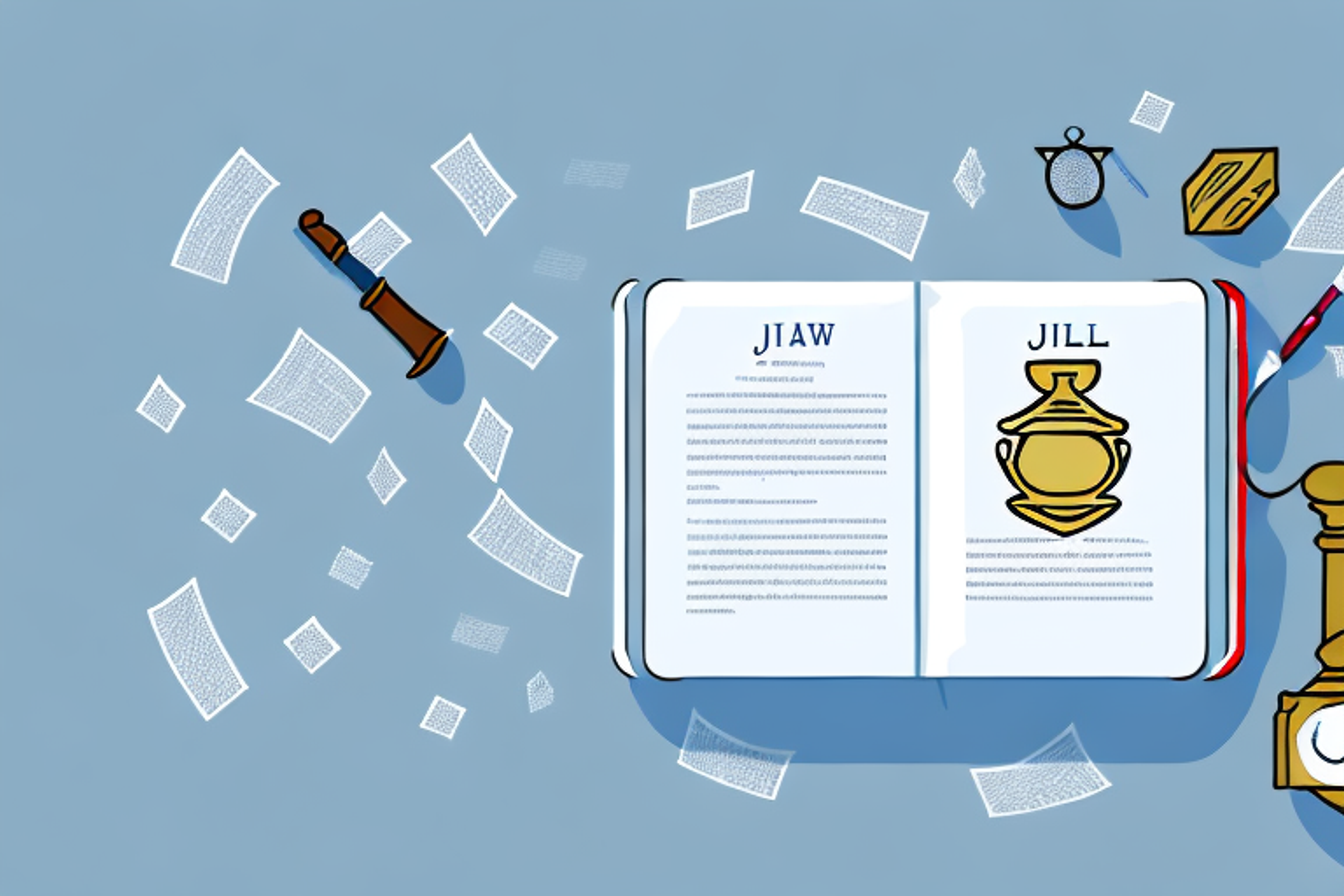How to Get Into Law School as a Military Veteran
If you're a military veteran looking to pursue a career in law, this article is for you.
Posted March 6, 2025

Table of Contents
If you're a military veteran considering applying to law school, you may be wondering about the unique advantages and challenges you'll face in the admissions process. Fortunately, there are a number of resources and strategies available to help you showcase your strengths and succeed in this competitive field.
The Benefits of Being a Military Veteran When Applying to Law School
First and foremost, many law schools value the skills and experiences that military veterans bring to the table. Your service may have equipped you with valuable leadership, analytical, and problem-solving skills that can give you an edge in law school and in your future legal career. Additionally, many schools have resources and support systems in place specifically for veteran students, which can be a major advantage as you navigate the application process.
Furthermore, being a military veteran can also provide you with unique perspectives and experiences that can enrich classroom discussions and contribute to a diverse learning environment. Your experiences may also make you more empathetic and understanding towards clients who have served in the military or have experienced trauma. Additionally, some law schools offer specialized programs or clinics focused on military and veterans' issues, which can provide you with hands-on experience and networking opportunities in this field.
Understanding the Law School Application Process for Military Veterans
The law school admissions process can be complex and intimidating, but there are a few key steps that all applicants must follow. First is taking the LSAT, or Law School Admission Test, which is a standardized exam that measures your logical reasoning and reading comprehension abilities. You'll also need to submit transcripts from any colleges or universities you've attended, as well as letters of recommendation and a personal statement that showcases your unique qualifications and interests.
For military veterans, there are additional considerations to keep in mind during the law school application process. Many law schools offer special programs and resources for veterans, such as networking opportunities with alumni who are also veterans, or scholarships specifically for military service members. It's important to research these options and take advantage of any resources that may be available to you.
Additionally, veterans may have unique experiences and perspectives that can be valuable in the legal profession. For example, veterans may have experience with international law or military law, which can be useful in certain legal fields. It's important to highlight these experiences in your personal statement and during interviews with law school admissions officers.
Top Law Schools for Military Veterans: A Comprehensive List
Some law schools have a reputation for being particularly welcoming and supportive of military veterans. Here are a few top-ranked schools that may be worth considering:
- Georgetown University Law Center
- The University of Virginia School of Law
- Yale Law School
- The University of California, Berkeley School of Law
- East Coast Law Schools with Strong Military Programs: Harvard Law School, Columbia Law School, and New York University School of Law
When considering law schools for military veterans, it's important to look beyond just the rankings. Factors such as the availability of veteran-specific resources, support networks, and opportunities for clinical work in areas such as veterans' rights and benefits can also be important considerations. Some schools, such as the University of San Diego School of Law and the University of Nebraska College of Law, have established programs specifically designed to support veterans and their unique needs. It's worth researching and reaching out to schools to learn more about what they offer in terms of support for military veterans.
Crafting a Winning Personal Statement as a Military Veteran Applicant
Your personal statement is an opportunity to showcase your unique qualifications, experiences, and motivations for pursuing a law degree. As a military veteran, you may have a particularly compelling story to share. However, it's important to strike a balance between highlighting your experiences and making sure your statement is well-written, concise, and interesting.
One way to ensure that your personal statement stands out is to focus on specific examples of how your military experience has prepared you for a career in law. For example, you may have developed strong leadership skills, the ability to work under pressure, or a keen attention to detail. These are all valuable qualities in the legal profession, and highlighting them can help demonstrate your potential as a law student and future lawyer.
Showcasing Military Experience in Your Law School Application
When applying to law school, it's important to highlight the specific ways in which your military experience has prepared you for success in the legal field. This might include discussing leadership roles you held in the military, highlighting any experience you have in legal or policy-related fields, or discussing any challenges you faced that demonstrate your determination, resilience, and adaptability.
Another way to showcase your military experience in your law school application is to discuss any specialized training you received that is relevant to the legal field. For example, if you received training in military law or worked as a paralegal in the military, this experience can demonstrate your knowledge and interest in the legal field.
Additionally, you can discuss any volunteer work or community service you have done related to the military or legal field. This can show your dedication to serving others and your commitment to making a positive impact in your community.
Tips for Securing Strong Letters of Recommendation for Your Law School Application
Strong letters of recommendation are an important part of any law school application, as they provide insight into your personal and professional characteristics that admissions committees may not be able to discern from other materials. When selecting recommenders, seek out individuals who know you well and can speak to your skills, values, and potential for success in law school and beyond.
It's also important to provide your recommenders with the necessary information to write a strong letter. This includes your resume, personal statement, and any other relevant materials that can help them understand your background and goals. Additionally, it's a good idea to schedule a meeting with your recommenders to discuss your application and answer any questions they may have. By doing so, you can ensure that they have a clear understanding of your strengths and can highlight them in their letter.
Navigating the GI Bill and Other Financial Aid Options for Law School
There are a number of financial aid options available to military veterans pursuing a law degree. The GI Bill, for example, provides financial support for educational expenses, housing, and other costs. Additionally, many law schools offer scholarships and other forms of financial aid specifically for veterans. It's important to explore all your options and plan accordingly to ensure you can afford to pursue your legal education without undue financial burden.
It's also worth noting that some states offer tuition waivers or discounts for veterans attending public universities. These programs vary by state, so it's important to research the options available in your area. Additionally, some law firms offer tuition reimbursement programs for employees pursuing a law degree. This can be a great option for veterans who are already working in the legal field and looking to advance their education. Overall, there are many resources available to help veterans finance their legal education, and it's important to take advantage of them to achieve your career goals.
Balancing Military Service with Law School Preparation: Time Management Tips
For many military veterans, balancing the competing demands of active duty service and law school preparation can be a major challenge. It's important to be realistic about your time commitments and to establish a system for managing your schedule and priorities. This might include establishing a study routine that fits around your work schedule, seeking out support from classmates and professors, and making use of any available support services provided by the school.
Additionally, it can be helpful to communicate with your commanding officer or supervisor about your academic goals and schedule. They may be able to provide accommodations or adjust your duties to allow for more study time. It's also important to take care of your physical and mental health, as both military service and law school can be demanding. Prioritizing self-care activities such as exercise, meditation, or therapy can help you stay focused and energized.
Transitioning from Military Life to Law School: What to Expect and How to Succeed
Transitioning from military service back to civilian life can be difficult, and entering a demanding academic program like law school can be a particularly challenging transition. It's important to be patient with yourself and to seek out support from your community, both on and off campus. Additionally, it may be helpful to connect with other military veterans who have successfully made the transition to law school to get insights and advice on how to navigate this new challenge successfully.
One of the biggest challenges that military veterans may face when transitioning to law school is adjusting to the academic environment. Law school requires a different set of skills and study habits than those developed in the military. It's important to take advantage of resources such as academic support services and study groups to help you adapt to this new learning environment. Additionally, many law schools offer programs specifically designed to support military veterans, such as mentorship programs and networking events.
Leveraging Military Skills and Experience in Your Legal Career
Once you've successfully completed law school and entered the legal profession, your military experience may continue to be a valuable asset to your career. Many law firms and other employers actively seek out military veterans for their leadership skills, work ethic, and unique perspective. Additionally, military veterans may be uniquely suited to certain areas of law, such as national security or veterans' rights.
Opportunities for Military Veterans in the Legal Profession
There are many different ways to pursue a career in law as a military veteran. Whether you're interested in working in private practice, public service, or the non-profit sector, there are many opportunities to put your skills and experience to work in the legal field. Additionally, many organizations offer programs and resources specifically for military veterans, such as networking events and mentoring programs.
Building a Support Network of Fellow Veteran Law Students and Lawyers
Finally, it's important to build a strong support network of fellow military veterans who are pursuing careers in law. These individuals can provide valuable advice, support, and encouragement throughout your law school journey and beyond. Consider joining a veterans' association or organization specifically for law students or legal professionals.
If you're a military veteran considering law school, there are many challenges and opportunities to consider. However, with the right resources and strategies, you can successfully navigate the admissions process and enter this exciting and rewarding profession.











